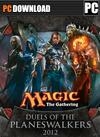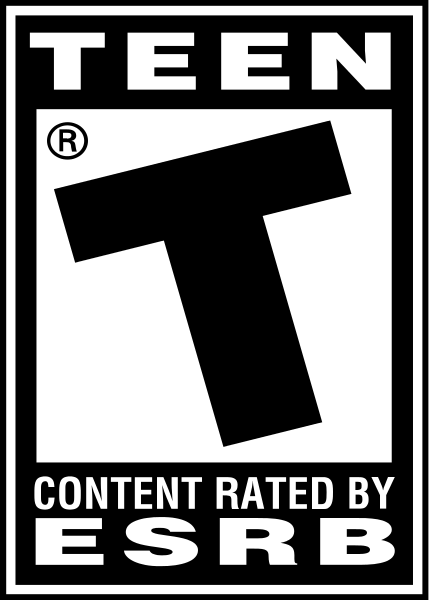Existing User Log In
New User Registration
Register for a free account to gain full access to the VGChartz Network and join our thriving community.





America - Front


America - Back



Stainless Games
Strategy
 06/15/11 Wizards of the Coast
06/15/11 Wizards of the Coast  (Add Date)
(Add Date) 06/15/11 Wizards of the Coast
06/15/11 Wizards of the Coast
| Owners: | 8 | |
| Favorite: | 0 | |
| Tracked: | 0 | |
| Wishlist: | 0 | |
| Now Playing: | 0 | |
By luciusbrimstone 18th Jul 2011 | 5,404 views
Ugh.
That's probably a bad sign at the start of a review. The worst of it is that I don't really know where to begin. See, the problem is I want to start by saying that I'm actually a pretty big Magic: The Gathering (MTG) fan, so I was hesitant at playing the first iteration of this game (MTG: Duels of the Planeswalkers. Not to be confused with MTG: Duels of the Planeswalkers 2012, which is a pretty easy thing to do). But, you know, there was that Steam achievement thing going on, and I'm really into Team Fortress 2... so I bought it. At the time I thought it wasn't bad.
At this point I started to write that this was getting off track, but it really isn't, and the reason for that is thus: the only real difference between MTG: Duels of the Planeswalkers and the 2012 version is the name. Ok, that's a lie. A really long, convoluted lie at that. Forget that for a second and look at it this way: there's about as much difference here as there is between two different blocks in the MTG card game. You know the deal; same core game but new cards. And that's cool for something like a card game, but it doesn't translate so well when you do the same for a video game.
The innate problem with all of my ranting about it not being much of an improvement is that MTG: 2012 still is an improvement. If you didn't buy the first one, then yeah, no question: get this one.
So let's actually talk about this game.
The first thing that slapped my attention was the menu system. Now, look at this screenshot:
It's cool. It's fancy. It would work if it didn't start you right in the middle with no indication as to what was where. Alright campaign, the core of the game, I see where you're at. That's there, and that's great! And I guessed correctly that the exit game was near the end (although I did assume that right equated to an end), which is good because I would have been extremely angry if I couldn't find that. But yeah, the rest of it? No clue. There is no excuse for making a player explore the menus in order to find exactly what he's looking for. Now, I said I'd stop talking about the previous version of this game, but that one had the decency to stick to a normal, albeit boring menu. No aggravating guesswork there.
The second thing I picked up on was the dated graphics. But hey, you know what? I'm not playing this game for a fancy-pants background. Sure, it looks like something out of the original Black and White but it also has an artsy feel to it that matches up with the artwork that some cards employ. Past the backgrounds the graphics are pretty good, as they very well better be, considering most of them are blatant scans of existing artwork and cards. Like the first game -- and I'll really stop after this one, I promise -- there are nifty animations that accompany the cards when they're placed or are attacking so that you know what they're going on about without having to closely examine each card; for example, creatures with flying float on the board. Although the animations are a touch on the basic side, it works. Fancy isn't necessary.
What might have been necessary is being able to actually read the cards. I kind of want to know what is in my own hand and on my playing field without having to zoom into each individual card, especially when these aren't decks of my own creation. If they were I would at least have a familiarity with the deck.
There are only four game modes, three of which are different interpretations of a single player campaign. All three campaigns are pretty similar; they follow the same path against the same enemies. The first campaign is a legitimate, real campaign, and it's pretty easy and straightforward: there are opponents, kill them, move on. As you beat opponents there you unlock their decks for your own use. After so many victories you unlock the Arch-enemy campaign, which is actually innovative but extremely easy. It's just you and two other A.I. controlled decks against an arch-enemy deck. It seemed too easy to me due to the opponent's decks moving so slowly that my team just quickly overwhelmed him. But hey, Arch-enemy is a really cool game mode, so whatever.
The third is the Revenge campaign, which is the same as the first campaign but your opponents now have their decks fully unlocked. Ah, I guess I neglected to talk about that. When you play in any mode you choose a pre-constructed deck and upon winning you unlock cards for that deck. So you can modify them to some extent. This doesn't work very well because you can't change the amount of lands in the decks and... well, there are about fifty percent more lands in these decks than I'm accustomed to using (the decks contain 60-ish cards natively with about 26 lands, which is a high land/spell ratio). It's weird that we don't have full control over adjusting the decks. Even weirder that we can't just create our own original decks; to me that's the point of MTG. You create your own, really cool deck and play with your buds. Without that this game just kind of... I don't know what it's trying to do, actually. It's Magic, sure, but it's... a hollowed out core, kind of like the corpse of some bug in a spider's nest. It's just... lacking of life.
Ah. The last game mode! Multiplayer. Yeah, I wish I could have tested that out but I couldn't find an opponent. See, this game uses the dated system of just automatically searching for games, rather than having a list of active games. And when it fails to find a game, it doesn't tell you that there aren't games; it tells you that you couldn't connect to the game you were trying to connect to. I honestly have no idea if there were any other people playing but I suspect that there weren't. So, if you're getting this to play with people, you'd better make sure that you know at least one other person who will get it with you.
Score. Professional stuff done. Time to harp on about why this is a horrible game.
The main thing is that, although MTG: Duels of the Planeswalkers 2012 is pretty good about the rules of MTG, it isn't perfect. There were multiple times where I just started yelling at the monitor about how that isn't how a particular rule works. Mostly my problems were priority related; the point of abilities and instants is that you can do them at any time. Period. No matter what happens you are given the opportunity to interrupt and do what you want to do. Here, you can't, and the problem is that I played with the assumption that you could. This occurs around the attacking phase. While declaring attackers or blockers you are unable to declare any abilities/instants. Ok, fair enough, you can work around this; sure it's not how MTG works but, well, you can get around that and just use the abilities at other times. Ok, I'm accustomed to playing at a bleeding edge level and that isn't necessary. That's fine.
Other things can't be defended by my obsession with playing at a bleeding-edge level. For example, being unable to assign how I want to deal damage to multiple blockers is just wrong. But then one of the editors here pointed out that, in the last iteration of the game, you could go into the options and change an option to allow you to assign damage as you would like; he then suggested that I verify this and modify the review. Alright, it's there, and that completely undermined this gripe... then gave room to a new one. It's great that you can actually do that, but I don't get why it's an option at all... and worse, why it would default to a mind numbingly poor choice at that. You would think that the game would default to follow the actual rules rather than streamlining them. And really, if you didn't know that option existed -- and it is embedded pretty deeply in the options -- then you're in trouble. Deciding which creature dies can really affect the outcome of a round.
Ok. Deciding how I deal damage might not matter that much as it doesn't come up as often as it could. Deciding how I spend my mana does matter. There were multiple times that I couldn't activate abilities or play spells because my mana was spent in a different way than I had intended. This is just awful. I get that it would slow the game down if, for each spell, it asked you how you wanted to play it, but I don't care. That's how the game works. If you're playing a multi-colored deck, which you probably will be in this game, then yes, leaving a set amount of green available to regenerate or whatever is extremely important. That problem came up just about every round; I managed to work around it by playing with the assumption that the game was going to screw me over, that running at my backside with a massive 6 foot screw driver was the game's entire premise, but I definitely was unable to hit each turn's full potential because of this. Similarly, I'm not given the chance to cast spells after I've declared my turn has ended but before my opponent's upkeep, or vice versa. That's a point I utilize a lot so I found that inability aggravating. Ok, let me retract that statement and make it a complete waste of time to have read (I'm not sorry about that. No regrets baby): I use the end step just about every turn of every game I play, and not having that is beyond crippling. Whatever though, it's not necessary and I'm just getting unnecessarily angry again.
But then the game also takes away my ability to choose when I want to enter combat. Ok, you can do it manually, so long as you have spells that you can only play before/after combat (such as creatures/sorceries, assuming you have the mana left to cast them anyway), but if you don't have said spells the game starts a very fast timer that, when it reaches the end, kicks you right into combat. Now, as I said earlier, you can't activate creature abilities while declaring attackers, leading to a troubling scenario that I couldn't fully prepare for combat before entering it. Awesome, right?
Yikes, this is lengthy now. At least we're at the end. I do have further grievances but they're so minor that I can't really justify writing them, like the location where the card's set icon would be being replaced by a 2012 symbol or that the challenges are fairly flawed. I mean, whatever, stuff like that? Not a huge deal, definitely not a game breaker. But yeah, I said I was wrapping this up, so let's do that.
Judging this game is hard. It does what it sets out to do and I want to judge it by its own merits rather than judging it by the game it's based on. Yeah, it doesn't do everything perfectly, but it's actually pretty good considering, and I can see why choices such as not allowing the player to assign damage/choose their own mana expenditure would be made; it does streamline the game. The A.I. is pretty intelligent and the game ultimately works. Still, as much as I want to judge it by its own merits, I just can't. I had a miserable time playing this game because I kept thinking about all the awful points I made. For a beginner looking to learn how to play Magic, this game is great. It's not perfect, it doesn't allow for the intricacies you'll need to understand to play at tournament level, but it'll let you learn the basic rules fast, so I can recommend it for that at least. But unless you're a massive addict to MTG and can't get by without a daily fix I can't recommend this game.









